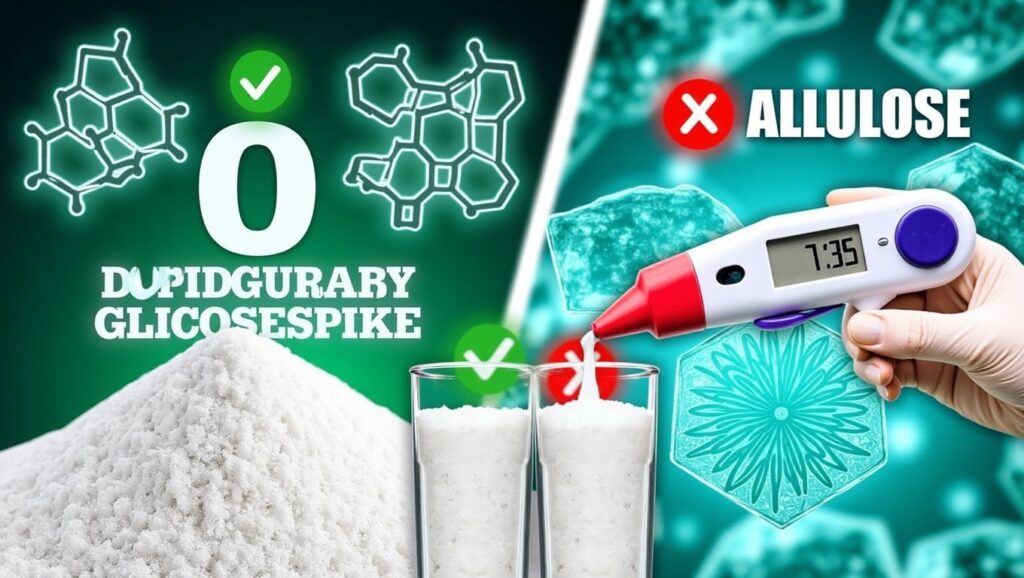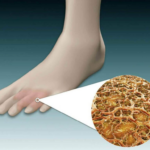Allulose: The Sugar That Doesn’t Spike Blood Sugar!
In the world of sweeteners, allulose is emerging as a game-changer. Often touted as the “miracle sugar,” allulose is a rare sugar that provides the sweetness of regular sugar but without the calorie and blood sugar spike. Here’s why allulose is making waves:
What is Allulose?
Allulose is a low-calorie sweetener found naturally in small quantities in certain foods, such as:
- Figs
- Raisins
- Maple syrup
Chemically, it’s classified as a “rare sugar” because it occurs in nature in minimal amounts. Despite its similarity to regular sugar in taste and texture, allulose contains about 90% fewer calories than sucrose (table sugar).
Why Doesn’t Allulose Spike Blood Sugar?
Unlike regular sugar, which is metabolized and increases blood glucose, allulose is absorbed by the body but not metabolized into energy. Instead, it:
- Passes through the bloodstream without significantly impacting blood sugar or insulin levels.
- Is excreted naturally, meaning it doesn’t contribute to weight gain or energy storage.
For individuals with diabetes or those following low-carb or ketogenic diets, this makes allulose a compelling option.
Benefits of Allulose
- Low-Calorie Sweetness
- Allulose provides the same sweetness as sugar with minimal calories, making it perfect for weight management.
- No Glycemic Impact
- Ideal for diabetics or anyone monitoring their blood sugar levels.
- Gut-Friendly
- Unlike some sugar alcohols, allulose is generally well-tolerated and doesn’t cause significant digestive discomfort.
- Antioxidant Properties
- Studies suggest allulose may help reduce inflammation and oxidative stress.
- Versatile in Cooking
- Allulose behaves like sugar in recipes, making it great for baking and beverages.
How Does It Compare to Other Sweeteners?
| Sweetener | Calories | Glycemic Impact | Texture/Taste Similarity to Sugar |
|---|---|---|---|
| Allulose | ~0.4 per gram | None | High |
| Stevia | 0 | None | Low (may taste slightly bitter) |
| Erythritol | ~0.2 per gram | None | Moderate |
| Sugar | 4 per gram | High | High |
Is Allulose Safe?
The FDA has recognized allulose as Generally Recognized as Safe (GRAS), meaning it’s safe for consumption in reasonable quantities. However, excessive intake (more than 30g/day) may cause mild digestive issues for some people.
Conclusion: Sweetness Without the Guilt
Allulose is reshaping the way we think about sugar. With its low calorie count, lack of glycemic impact, and versatility in recipes, it’s an ideal choice for health-conscious individuals. Whether you’re managing diabetes, pursuing a ketogenic lifestyle, or simply looking to cut back on calories, allulose offers sweetness you can savor without compromise.
There is a dietary supplement formulated to help control blood sugar levels and promote metabolic health. Its name is sugar defender.
If you want to explore more about Sugar Defender, visit the official website

Dr. Sarah Miller is widely recognized as an influential leader in the healthcare field, with a career marked by excellence, innovation, and dedication to improving human well-being. Combining exceptional academic knowledge, clinical experience, and a deep commitment to research, she has become a reference in her specialty.







